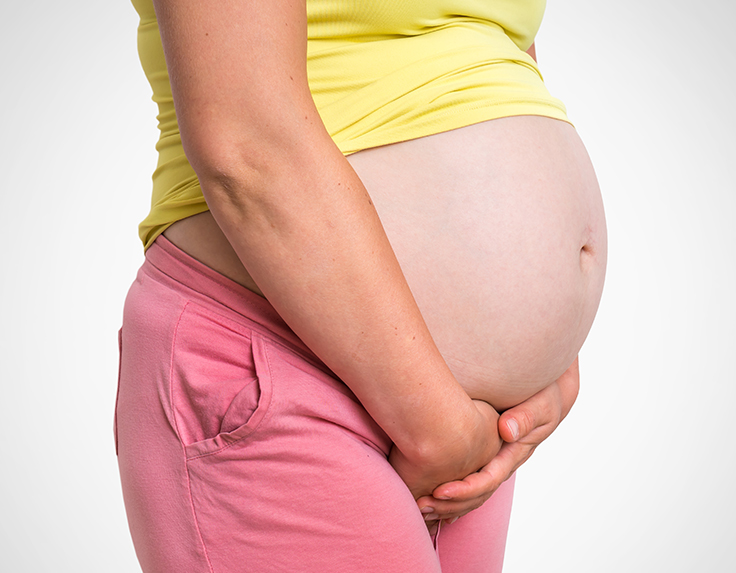Ectopic Pregnancy: Symptoms, Causes, and Treatment
Pregnancy is a truly remarkable time in a woman’s life, filled with many emotions, challenges, and joys. It is a time when a woman’s body is transformed, creating and nurturing new life within. It is a time when women can feel a sense of ambition and hope, as they prepare to welcome their new bundle of joy into the world. While pregnancy can also bring its own set of difficulties, such as morning sickness, fatigue, and mood swings, these challenges are often outweighed by the excitement and anticipation of the new life growing inside. For many women, pregnancy is a time of deep reflection and preparation for the future, as they look forward to the journey of motherhood and all the joys and challenges it will bring.
While it is a beautiful experience for most women, it is important to be aware of the risks and complications that can arise. One such complication is ectopic pregnancy, which occurs when a fertilized egg implants itself outside of the uterus. This type of pregnancy can be dangerous and even life-threatening if left untreated. In this blog, we will discuss the symptoms, causes, treatment, and frequently asked questions about ectopic pregnancy. To begin with, let’s have a look at the symptoms of this type of pregnancy.
Symptoms of an Ectopic Pregnancy
The symptoms of an ectopic pregnancy can be similar to those of a normal pregnancy, but there are some additional signs to look out for. These symptoms may include:
- Abdominal pain or cramping, usually on one side: One of the most common symptoms of an ectopic pregnancy is abdominal pain or cramping. This pain is usually felt on one side of the abdomen and may be accompanied by mild to severe cramping.
- Vaginal bleeding or spotting: Another common symptom of ectopic pregnancy is vaginal bleeding or spotting. This may be lighter or heavier than a normal period and may last for a few days to several weeks.

- Nausea or vomiting: Many women with ectopic pregnancy experience nausea or vomiting, which can be mistaken for morning sickness in a normal pregnancy.
- Dizziness or lightheadedness: Ectopic pregnancy can cause a drop in blood pressure, which can lead to dizziness or lightheadedness. This can be accompanied by feelings of weakness or fainting.
- Shoulder pain or pain in the rectum: Shoulder pain or pain in the rectum may occur when an ectopic pregnancy ruptures and causes internal bleeding. This is a medical emergency that requires immediate attention.
- Painful urination or bowel movements: In some cases, an ectopic pregnancy can cause pain during urination or bowel movements. This may be due to pressure on the bladder or rectum.
- Pain during intercourse: Women with ectopic pregnancy may experience pain during intercourse due to pressure on the reproductive organs.
- Weakness, fainting, or collapse (in severe cases): In severe cases, ectopic pregnancy can lead to weakness, fainting, or collapse due to internal bleeding or shock.
It is important to remember that these symptoms can be indicative of other conditions as well, and not all women with ectopic pregnancies experience them. Therefore, it is essential to seek medical attention immediately if you suspect that you may have an ectopic pregnancy. Early diagnosis and treatment can improve the chances of a successful outcome. Understanding of the symtpoms will help identify the situation and make you act on it on time. Now let’s have a look at the treatments available for the same.
How an Ectopic Pregnancy is Treated
The treatment of an ectopic pregnancy depends on the severity of the condition and the woman’s overall health. Early diagnosis and treatment are essential to prevent serious complications, such as internal bleeding and shock. Some of the treatment options for ectopic pregnancy include:
Medication: In some cases, medication can be used to dissolve the ectopic pregnancy. Methotrexate is the most common medication used for this purpose. It works by stopping the growth of the embryo, allowing the body to absorb it naturally over time.
(source : https://clinicaltrials.gov/ct2/show/NCT01855568)
Surgery: If the ectopic pregnancy has ruptured or is causing severe bleeding, surgery may be necessary. The type of surgery depends on the severity of the condition and the woman’s overall health. Laparoscopic surgery is a minimally invasive procedure that involves making small incisions in the abdomen to remove the ectopic pregnancy. In severe cases, an open surgery may be necessary.
Monitoring: In some cases, a doctor may choose to monitor the ectopic pregnancy closely to see if it resolves on its own. This is usually done in cases where the ectopic pregnancy is very small and not causing any symptoms.
After treatment, it is important for women to receive follow-up care to ensure that the ectopic pregnancy has been fully resolved and that there are no complications. This may include regular check-ups, blood tests, and ultrasound exams. Women who have had an ectopic pregnancy may also need to wait a certain amount of time before trying to conceive again, as the condition can affect fertility. It is important to discuss any concerns or questions with a healthcare provider to ensure the best possible outcome.
What Can Cause an Ectopic Pregnancy?
The exact cause of ectopic pregnancy is not always clear, but there are certain risk factors that may increase the chances of developing this condition. Some of the common causes and risk factors of ectopic pregnancy include:
Previous pelvic surgery: Women who have undergone pelvic surgery, such as surgery for endometriosis or pelvic inflammatory disease, may have scarring or damage to the fallopian tubes, increasing their risk of ectopic pregnancy.
Sexually transmitted infections (STIs): STIs, such as chlamydia and gonorrhea, can cause inflammation and scarring in the reproductive organs, increasing the risk of ectopic pregnancy.
Previous ectopic pregnancy: Women who have had a previous ectopic pregnancy are at a higher risk of developing another one.
Fertility treatments: Women who have undergone fertility treatments, such as in vitro fertilization (IVF), may have a higher risk of ectopic pregnancy due to the use of assisted reproductive technologies.
Age: Women over the age of 35 are at a higher risk of ectopic pregnancy.
Smoking: Smoking can damage the fallopian tubes, increasing the risk of ectopic pregnancy.
Birth control: Women who become pregnant while using certain forms of birth control, such as an intrauterine device (IUD), may have an increased risk of ectopic pregnancy.
It is important to note that in some cases, ectopic pregnancy can occur without any identifiable risk factors. If you suspect that you may be experiencing symptoms of ectopic pregnancy, it is important to seek medical attention immediately to receive a proper diagnosis and treatment.
Apart from above stated information, there is a list of frequently asked questions that you should be aware of.
FAQ
How do you confirm ectopic pregnancy?
An ectopic pregnancy can be confirmed through an ultrasound or blood tests to measure hormone levels.
How long does an ectopic pregnancy last?
An ectopic pregnancy cannot be carried to term and must be removed. The length of time it lasts can vary, but it must be removed as soon as possible to prevent complications.
Can a urine test detect ectopic pregnancy?
A urine pregnancy test may detect pregnancy hormones, but it cannot confirm whether the pregnancy is ectopic or not. An ultrasound or blood tests may be needed for confirmation.
In conclusion, ectopic pregnancy is a serious complication that requires prompt medical attention. If you experience any symptoms of ectopic pregnancy, seek medical attention immediately. With proper treatment, most women are able to recover fully and continue to have successful pregnancies in the future.











































Leave a comment